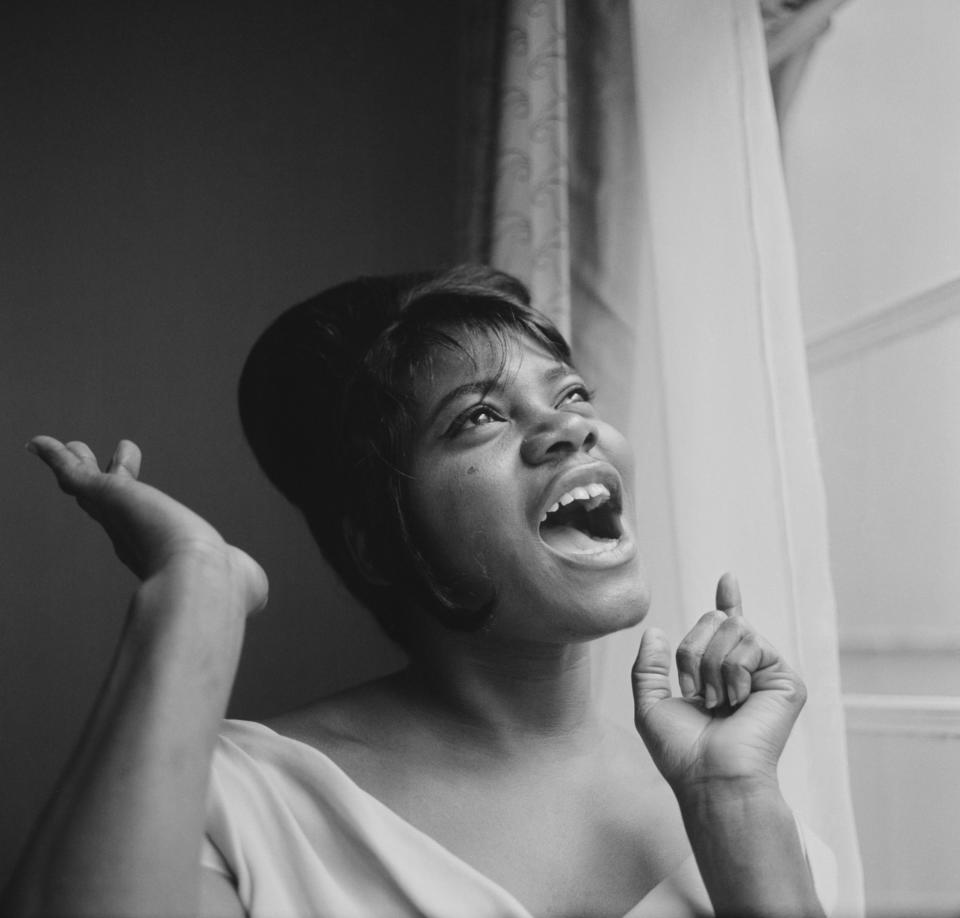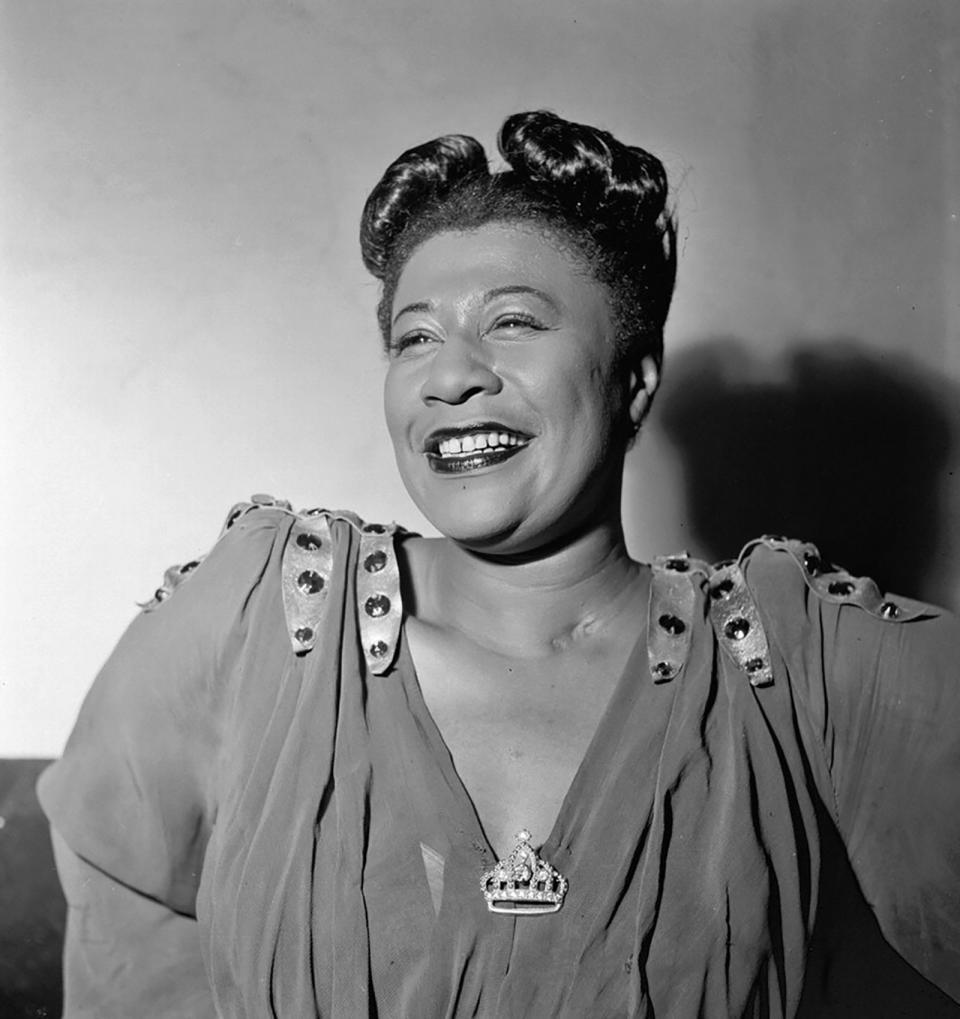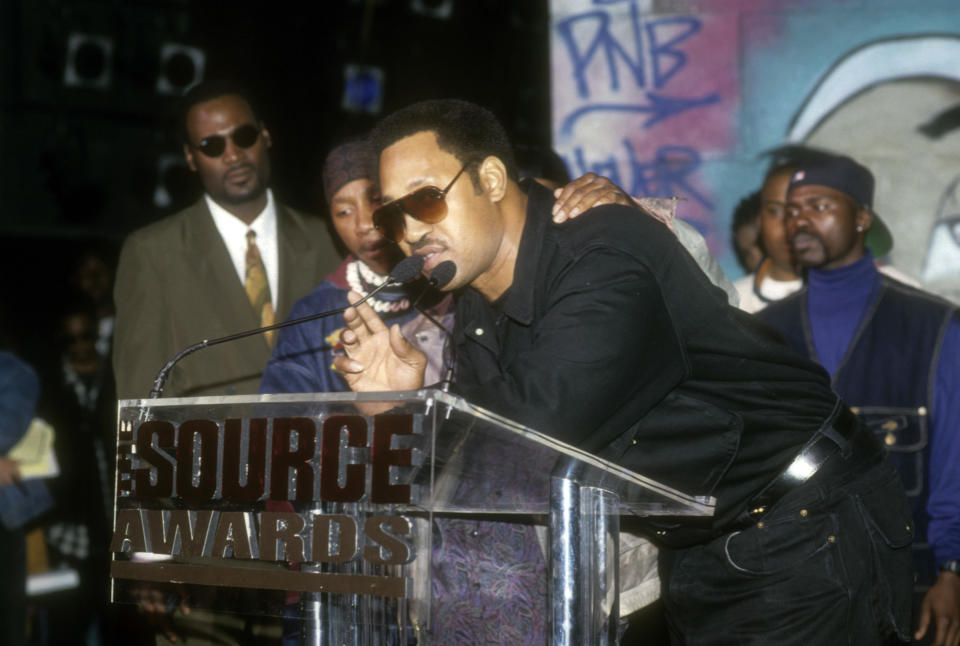History Worth Knowing: Here Are 10 Facts About Black Music History
- Oops!Something went wrong.Please try again later.
I'm celebrating my favorite Black artists this month — streaming and repurchasing their singles and projects.
Apple Music / Via giphy.com
Why? Because it's Black music appreciation month!
The Recording Academy/ GRAMMYS / Via giphy.com
I took a deep dive into Black Music's history in honor of this month-long celebration and the artists that shaped the industry. Here are ten brief facts.
BET Awards / Via giphy.com
1.The origin of Black music is traced back to slavery. Spirituals were one of the earliest forms of musical expression (1619–1865).
PBS Digital Studios / Via giphy.com
During the inhumane times of slavery, enslaved people were forbidden to speak their native languages, as owners feared they would plan and share escape routes or seek revenge and rebel. So to communicate their feelings, whether it was sorrow or hope, they began singing and creating songs that were passed down to many generations. These songs were referred to as spirituals. There were songs of freedom and survival, influenced by African and religious traditions. Many say that Gospel music is a genre that comes from Spirituals.
2.Blues music was created post-slavery (the 1860s, Deep South).

In the 1860s, a musical genre took life in the south by storm: Blues. African-Americans created this new form of sound, taking inspiration from both work songs and spirituals. Blues rapidly spread across the United States, becoming the genre characterized by call and response patterns, a specific 12-bar chord progression, etc. It's the originator of the groove pattern and has many sub-genres such as the Chicago Blues, Country, Delta, West Coast, Electric, and more.
3.George W. Johnson was the first African-American to record commercially (1890).
4.Although jazz music first appeared around the 1890s, it rose to popularity with blues as the ragtime musical style began to slow down (1900–1945).
5.Tommy Edwards was the first Black artist to hit #1 on the Billboard Hot 100 (1958).
6.Ella Fitzgerald was the first Black artist to win a Grammy (1958).

Known as the "First Lady of Song," Ella Fitzgerald was an American jazz singer whose rendition of "A- Tisket, A-Tisket" made her a global star. She was the first Black artist to win a Grammy in the first year of the Grammy Awards, and her band leader, Count Basie, also won an award. Fitzgerald went on to win several more Grammys and other mentions of honor.
7.Miles Davis's album, Kind of Blue, challenged creativity in jazz, which impacted the music industry (1959).
8.Rock and roll, house, reggae, hip-hop, R&B, and more genres originated from Black musical styles (1950s–now).
Vevo / Via giphy.com
After expressing themselves through blues, jazz, and ragtime, more genres of music began to emerge. In the late 1950s, genres like pop and rock and roll began to hit radio airwaves. More genres like reggae, house, hip-hop, and R&B started to take off, making Black music diverse and making it easier for artists to express themselves through sounds that connected with them and their fans.
9.Hip-hop created a voice for Black people in poverty and the conditions of Black lives (1970–now).

Although some people can hear hip-hop styles in doo-wop music (1940–1950), structure-wise, the genre started in New York City's Bronx neighborhood. It gave Black people in poor communities a voice, a way to be heard, as prior, many felt like their cries for better conditions were unheard. Jamaican DJ, DJ Kool Herc, is one of the earliest hip-hop DJs and artists. Artists like Tupac also became the people's voice through his music and informational interviews.
10.New Black music genres like drill and trap are becoming global genres (Early 2010s–now).
2 Chainz / Via giphy.com
New musical genres like trap, originating in Atlanta, and drill, created in Chicago (but influenced by British grime), are heard worldwide. There are also sub-R&B, soul, and pop genres on the rise.
Black music is constantly evolving, and the artists who paved the way and the ones now deserve appreciation for shaping the music industry.
Which genre or Black artist impacted your life the most? I'd love to know!

